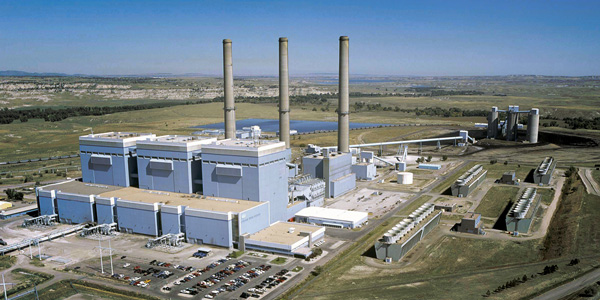By Rich Heidorn Jr.
FERC last week rejected a request by several SPP members that they be exempted from congestion and marginal loss charges under a grandfathered contract signed before they joined the RTO (ER14-2850-008, ER14-2851-008).
The commission ruled Sept. 26 that Missouri River Energy Services, Basin Electric Power Cooperative, Western Area Power Administration – Upper Great Plains (Western-UGP), Heartland Consumers Power District and Nebraska Public Power District (NPPD) were ineligible for “carve-out treatment” under the SPP Tariff and a 1977 transmission service contract between NPPD and Basin Electric.
The 1977 contract arose from construction of NPPD transmission needed to deliver power to Western-UGP and Lincoln Electric System from the Missouri Basin Power Project — a venture owned by six public power and cooperative utilities that includes the 1,710-MW Laramie River coal generator, the Grayrocks Dam and reservoir, and more than 500 miles of EHV transmission.
The commission ruled that the utilities were not eligible for a carve-out, although it acknowledged that the section of the SPP Tariff governing grandfathered agreements (GFAs) was “ambiguous.”
The commission rejected the utilities’ claim that they should be exempted from the charges because FERC had previously granted carve-out status to Lincoln, which was also a party to the 1977 contract.
“Though parties to the same contract, Lincoln Electric and [the] parties seeking carve-out treatment are in a fundamentally different position with regard to the costs of participating in SPP because of when each party chose to join SPP,” the commission said. “Lincoln Electric, an SPP member since 2008, was subject to a forced transition to a day-two energy market when SPP adopted the Integrated Marketplace in 2014 and, therefore, received carve-out treatment along with several other non-jurisdictional GFAs that were also subject to a forced transition. On the other hand, [the] parties seeking carve-out treatment were not subject to a forced transition to a day-two energy market when they joined SPP after the commencement of the Integrated Marketplace. Parties seeking carve-out treatment had a choice of whether or not to subject themselves to SPP’s market rules.”
Network Agreements Approved
In a separate order Sept. 25, the commission approved SPP’s unexecuted network integration transmission service agreements with Kansas Power Pool (KPP) effective June 1, 2017, and its executed network operating agreements with KPP, Midwest Energy Inc., Mid-Kansas Electric Co. and Westar Energy effective Sept. 1, 2017 (ER17-2032-002, ER17-2038-002).
KPP protested the service agreements’ inclusion of language describing KPP’s potential liability for credit payment obligations. KPP said that SPP staff had informed it that transmission studies had indicated it would not be responsible for any credit payments because they would be fully covered by base plan funding.
The commission rejected KPP’s complaint, saying the company could be liable for credit payments because final cost information is not available for one upgrade under the agreements, the Woodward EHV 138-kV phase shifting transformer circuit #1.
“When SPP receives the final cost information for the Woodward upgrade, SPP can determine whether all the credit payment obligations are fully covered by base plan funding,” the commission said.





